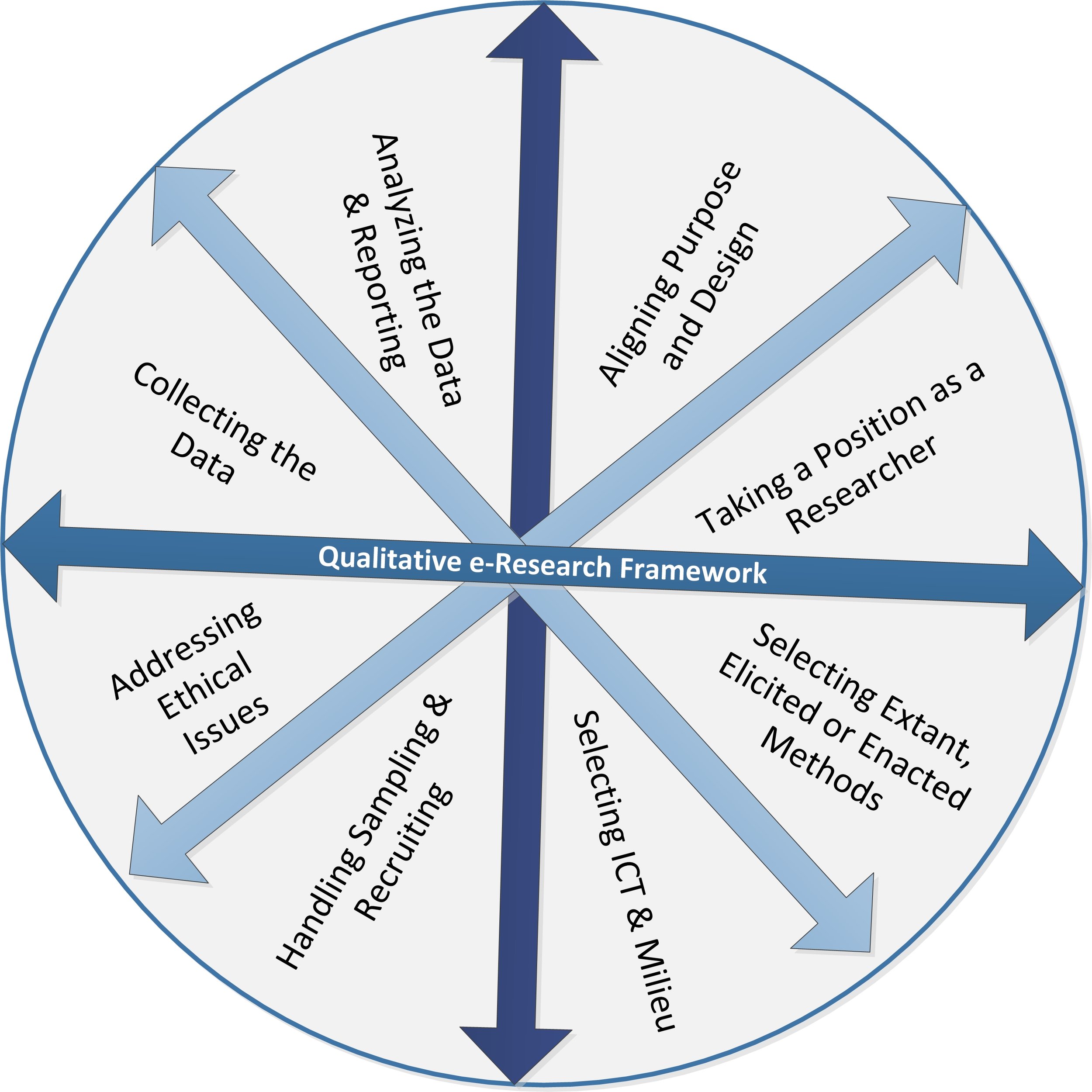Collecting Data with Games
by Janet Salmons, Ph.D., Research Community Manager for Methodspace
In the 2nd quarter of 2023 the Methodspace focus is on ways to collect data. In our digital world, one way to engage with others is through games. Some researchers use games to study the players’ experience and their features. Other researchers find or devise games that allow them to interact with participants to study other kinds of problems and questions. This multidisciplinary collection of articles offers a variety of examples of both types.
Coon, J., Etz, A., Scontras, G., & Sarnecka, B. W. (2023). Esports as a Cultural Microcosm for Studying Psycholinguistics. Games and Culture, 0(0). https://doi.org/10.1177/15554120231164554
Abstract. Esports have become increasingly popular as naturalistic experimental settings. In large part, this popularity is due to esports helping researchers balance ecological validity and experimental control; esports provide situations in which people are naturally motivated to learn and act in a complex yet restricted environment. Since players often learn and act collaboratively, many researchers have used esports as a setting in which to study communication. However, most of this research has focused on optimizing team performance or player experience, with less work examining fundamental questions of psycholinguistics. Esports offer unique opportunities in this regard, particularly for studying psycholinguistics in the context of prior knowledge, emergent expertise, and emergent culture. The present paper describes a case study that demonstrates the benefits of using an esport as a microcosm for studying psycholinguistics and points to opportunities for further exploration.
Gundry, D., & Deterding, S. (2019). Validity threats in quantitative data collection with games: A narrative survey. Simulation & Gaming, 50(3), 302-328.
Abstract. Games are increasingly used to collect scientific data. Some suggest that game features like high cognitive load may limit the inferences we can draw from such data, yet no systematic overview exists of potential validity threats of game-based methods. We present a narrative survey of documented and potential threats to validity in using games for quantitative data collection.
Henriet, E., Burnay, N., Dalimier, J., Hurley, J., & Henry, S. (2021). Challenges and Opportunities of Field-based Data Collection with a Game. Analysis of the Development and use of a Game to Collect Data on People’s Emotional Experience in their Environment. Bulletin of Sociological Methodology/Bulletin de Méthodologie Sociologique, 149(1), 7–29. https://doi.org/10.1177/0759106320960885
Abstract. The authors developed and used a game (Tigo-Tigo) to collect data on people’s emotional experience in their environment in an area hit by a typhoon (Philippines). With the aim of encouraging the use of games for data collection in the field, they provide an in-depth analysis of all phases of the process, from the game development to the experience of the game sessions and the quality of the data produced. Designing a data collection game is creating an immersive experience that get people to share information with the researcher. However challenging to develop as it has to meet both data gathering and game requirements, Tigo-Tigo successfully produced complex data and a positive experience. By following its simple rules, the respondents were led to formulate and share both quantitative (emotion levels) and qualitative (explanations for emotion-environment associations) data. Moreover, the game was motivating and changed the status of participation, as the researchers played with the respondents in an inversed power setting. Finally, its particular interactional structure also improved the quality of the data produced by reducing expectation as well as cultural and translation barriers encountered in the field.
Kelly, D., Nic Giolla Easpaig, B., & Castillo, P. (2023). ‘You Game Like a Girl’: Perceptions of Gender and Competence in Gaming. Games and Culture, 18(1), 62–78. https://doi.org/10.1177/15554120221077730
Abstract. While there is an abundance of research concerning the gendered dimensions of video gaming and online communities, there is a limited focus on gameplay competence. This study examined the relationship between sexism and gendered perceptions of competence in gaming. Three hundred and 85 participants volunteered to take part. Participants were randomly allocated to one of three gendered conditions (female, male or neutral). Participants watched two video game clips within each condition (novice and expert playthroughs). Participants rated the competence and warmth of the players, estimated the number of errors made and completed the Ambivalent Sexism Inventory. The findings indicated that female and neutral clips were perceived as less competent than male clips in both skill levels. This difference was more pronounced in the expert level. Warmth ratings varied significantly across conditions. Hostile sexism predicted lower perceptions of warmth. The study demonstrates the need for inclusive and safe online gaming environments.
Landwehr, P., Spraragen, M., Ranganathan, B., Carley, K. M., & Zyda, M. (2013). Games, social simulations, and data—integration for policy decisions: The SUDAN game. Simulation & Gaming, 44(1), 151-177.
Abstract. In this article, the authors discuss the development of the SUDAN GAME, an interactive model of the country in the time period leading up to the Sudanese referendum on the secession of the South. While many simulations are designed to educate about their subjects, the SUDAN GAME is intended to be a prototype for policy making via gameplay. It is implemented within COSMOPOLIS, a massively multiplayer online game that is currently undergoing development. In this article, the authors discuss the game’s design and how it can be used for policy development, with a focus on the underlying model and some discussion of the COSMOPOLIS implementation. They situate the game relative to other games that have crowdsourced serious problems and discuss the meaning of the policy solutions and collaboration witnessed along players. They conclude with a discussion of future development to be done to improve and expand upon the concepts used in their game.
Lee, E., Abdollahi, M., & Agur, C. (2022). Conceptualizing the Roles of Involvement and Immersion in Persuasive Games. Games and Culture, 17(5), 703–720. https://doi.org/10.1177/15554120211049576 (subscription)
Abstract. While previous studies showed that persuasive games can have positive effects on attitudes and behavioral intentions, little is known about the underlying processes that cause these effects. This study investigates immersion and involvement in order to provide a better understanding of the effects of persuasive games. We conducted an experiment with 152 college students in which participants either played a persuasive game or watched the playback of the game. Our results showed that affective and ludic involvement and immersion mediated the relationship between interactivity (gameplay vs. playback) and persuasive outcomes (attitude and behavioral intention).
Nijdam, E. “Biz.” (2023). Recentering Indigenous Epistemologies Through Digital Games: Sámi Perspectives on Nature in Rievssat (2018). Games and Culture, 18(1), 27–41. https://doi.org/10.1177/15554120211068086
Abstract. This article examines Rievssat (2018), one of the six games developed during the 2018 Sami Game Jam, as a case study to demonstrate how digital games on Indigenous issues afford opportunities to embed Indigenous ways of knowing into the core of game design. In particular, by exploring Rievssat’s themes and game mechanics, this article identifies the way its procedural rhetoric models an understanding of and relationship to the game environment that reflects the dialogic connection with nature and animistic worldview unique to the Sámi people. This article thereby demonstrates the value of new media in recentering Indigenous systems of knowledge and cultural practices by engaging with and incorporating Indigenous epistemologies into the foundation of game design, revealing how Sámi digital games can offer insight into Sámi ways of knowing and experiencing the world to Indigenous and non-Indigenous players alike.
Pusey, M., Wong, K. W., & Rappa, N. A. (2022). Using Case Studies to Explore Need Satisfaction and Frustration in Puzzle Video Games. Games and Culture, 17(5), 752–772. https://doi.org/10.1177/15554120211056126 (subscription)
Abstract. Self-Determination Theory proposes that people are intrinsically motivated to play video games to fulfil the psychological needs of autonomy, competence and relatedness. However, video games can also actively thwart and frustrate these needs. This paper investigates how need frustration affected motivation to solve cognitively challenging puzzle video games. Participants (n = 27) played two cognitively challenging puzzle video games, with data collected through a survey, recorded gameplay footage and interviews. The analysis reveals that when a player’s primary need for playing was frustrated, they quit easily and did not enjoy the game and when a player’s primary need for playing was satisfied, they displayed resilient behaviours and enjoyed the game. These findings suggest cognitively challenging video games that are more likely to be used in educational contexts should contain features that support autonomy and relatedness as well as competence, in order to be motivating for as many players as possible.
Sadati, S. H., & Mitchell, C. (2021). Serious game design as research-creation to address sexual and gender-based violence. International journal of qualitative methods, 20, 16094069211046130.
Abstract. Research-creation is a growing practice in humanities that tries to balance the pace of socio-cultural inquiries with modern media advancements and qualitative knowledge construction methods. It refers to various conjunctions of “research” and “creation” (i.e., research-for-creation; research-from-creation; creative presentations of research; and creation-as-research) around an artistic component. Drawing from fieldwork with instructors in four agricultural colleges in rural Ethiopia, this article explores how a participatory arts-based serious game design process is explicable within the context of research-creation. This work’s change-oriented agenda led to developing Mela, a serious game, to educate and empower instructors in agriculture colleges to tackle sexual and gender-based violence issues in their institutions. Here, we articulate Mela’s design process, its artistic composition, and how we understand it from different angles of research-creation practices. We also offer our introspective accounts during and after the design stages, referencing culture and gender as critical concepts. Serious games are pedagogical products that are designed for a meaningful learning experience. This work deepens the understanding of how research-creation practice can benefit the serious game design field by ensuring the attention to both process and production.
Santos, D., Zagalo, N., & Morais, C. (2023). Players Perception of the Chemistry in the Video Game No Man’s Sky. Simulation & Gaming, 10468781231169301.
Abstract. No Man’s Sky (NMS) is a sci-fi videogame about survival and exploration where players fly spaceships, search for elements, and use them to build, trade, and survive. Despite evolving around scientific concepts, NMS isn’t a serious game, and not all the scientific content in the game is presented with evidence.
Looking at the interceptions between videogames and science, and moving to how science communication, both in theory and practice, can be explored within the videogame’s paradigm, a survey was developed to better understand how NMS players perceive the scientific content in the game.
































Informed consent is the term given to the agreement between researcher and participant. In this post Janet Salmons offers suggestions about the intersections of the Internet communications, ethics and participants.